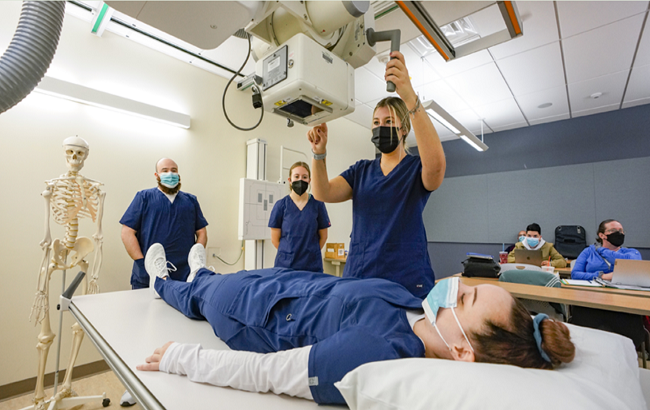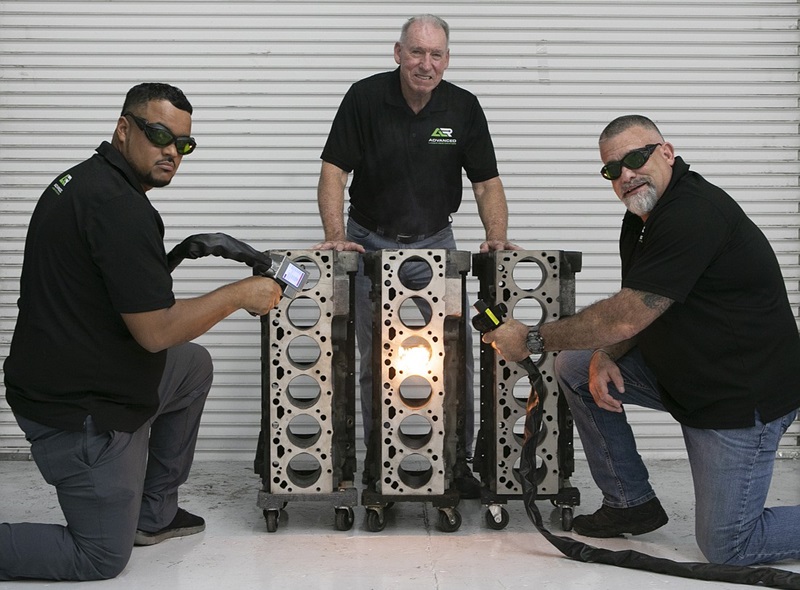The Radiology Technician Program is a gateway to a thriving career in medical imaging. As someone looking to break into this rewarding field, you might have questions about the path ahead. This guide explores seven crucial insights to help you excel and understand what makes this program such a valuable investment in your future.
1. What is a Radiology Technician Program?
A Radiology Technician Program equips students with the skills and knowledge required to perform diagnostic imaging procedures. These programs typically cover:
- Medical Imaging Techniques: X-rays, CT scans, MRIs, and fluoroscopy.
- Anatomy and Physiology: Understanding human body systems.
- Radiation Safety: Best practices to protect patients and technicians.
- Patient Care: Interacting with patients professionally and empathetically.
Graduates are prepared for roles in hospitals, clinics, and specialized imaging centers.
2. Why Should You Consider This Program?
Becoming a radiologic technologist offers numerous benefits, such as:
- High Demand: The healthcare industry continues to grow, ensuring steady job opportunities.
- Attractive Salary: Median annual earnings often exceed $60,000.
- Room for Growth: Specialize in advanced imaging techniques like MRI or mammography.
This field is perfect if you enjoy working with technology and helping people simultaneously.
3. How Long Does the Program Take?
The duration of a Radiology Technician Program depends on the type of degree or certification you pursue:
- Associate Degree: Typically completed in 2 years.
- Certificate Programs: Range from 12 to 18 months, ideal for those with prior healthcare experience.
- Bachelor’s Degree: A 4-year program offering advanced training and career opportunities.
Each path includes classroom instruction and clinical rotations for hands-on experience.
4. Essential Skills You Will Learn
A Radiology Technician Program provides training in several critical areas:
Technical Skills:
- Operating imaging equipment.
- Understanding radiographic techniques.
- Adjusting machines to capture clear images.
Soft Skills:
- Effective communication with patients and healthcare teams.
- Empathy and care when working with nervous or injured patients.
- Attention to detail for accurate imaging and diagnosis.
Clinical Skills:
Through supervised clinical rotations, you’ll practice:
- Positioning patients for optimal imaging.
- Applying safety measures to minimize radiation exposure.
- Reviewing images for clarity and accuracy.
5. Accreditation and Certification: What to Know
When choosing a program, ensure it’s accredited by the Joint Review Committee on Education in Radiologic Technology (JRCERT) or a similar body. Accreditation ensures:
- High-quality education.
- Eligibility for certification exams.
After graduation, most states require you to pass the American Registry of Radiologic Technologists (ARRT) certification exam to become licensed.
6. Tips for Success in Your Program
Starting a Radiology Technician Program is exciting, but it can also be challenging. Here are a few tips to help you succeed:
- Time Management: Balance coursework, clinicals, and personal responsibilities.
- Stay Curious: Continuously seek to understand the science behind imaging techniques.
- Collaborate: Build strong relationships with peers and mentors.
- Use Technology: Familiarize yourself with digital tools used in radiology.
For more insights on leveraging tech in radiology, check out this article on WITCC. It’s a fantastic resource for learning about innovative tools shaping the field.
7. Career Opportunities After Graduation
Completing a Radiology Technician Program opens doors to diverse roles, including:
- Radiologic Technologist: Performing diagnostic imaging procedures.
- MRI Technologist: Specializing in magnetic resonance imaging.
- CT Technologist: Focusing on computed tomography scans.
- Mammography Specialist: Conducting breast imaging for early cancer detection.
You can also advance to supervisory roles or continue your education to become a radiologist.
Advanced Insights into Radiology Technician Programs
To delve deeper into this field, here are additional insights that can help:
Networking Opportunities:
Engage with professionals through internships and clinical rotations. Building a strong network can help you land your first job and stay updated with industry advancements.
Continuing Education:
Healthcare is a dynamic field, and staying current is vital. Many radiologic technologists pursue further certifications in:
- Interventional Radiology: Advanced techniques for minimally invasive procedures.
- Sonography: Focusing on ultrasound imaging.
- Radiation Therapy: Specializing in cancer treatment.
Financial Considerations:
While tuition varies, many students access:
- Federal Grants and Loans
- Scholarships: Offered by schools, industry groups, and professional organizations.
- Work-Study Programs: Part-time work to offset costs.
Radiology Technician Program Prerequisites
A Radiology Technician Program begins with specific prerequisites designed to ensure students are ready for rigorous coursework. Typically, these include a high school diploma or GED, and foundational knowledge in math, biology, and physics. These prerequisites set the stage for mastering advanced medical imaging techniques. Many programs also require applicants to complete standardized tests or have some volunteer experience in healthcare. Choosing the right Radiology Technician Program that aligns with your academic background and career goals is crucial.
Accredited Radiology Technician Schools Online
Finding an accredited Radiology Technician Program online ensures you receive high-quality education that meets industry standards. Accreditation is critical because it validates the program’s curriculum and eligibility for certification exams. Online schools offer flexibility for working professionals while maintaining rigorous standards. Completing an accredited Radiology Technician Program equips you with both technical and patient care skills needed in today’s competitive job market. Learn how accreditation impacts career success by visiting trusted educational platforms like WITCC.
Radiology Tech Program Application Deadlines
Staying informed about application deadlines for a Radiology Technician Program is essential to securing your spot in a competitive field. Deadlines often vary by institution, so creating a timeline to gather documents, complete prerequisites, and submit your application on time is key. Missing a deadline could delay your career ambitions by months or even a year. Researching your desired Radiology Technician Program and understanding their specific requirements will give you an edge.
Financial Aid for Radiology Technician Students
Enrolling in a Radiology Technician Program is an investment, and financial aid options can make it accessible to everyone. Scholarships, grants, and federal loans are commonly available for aspiring radiology techs. Many schools also provide work-study programs to help students manage costs while gaining valuable experience. Researching these options early ensures you maximize opportunities to fund your Radiology Technician Program without excessive debt.
Radiology Technician Program Curriculum Overview
A Radiology Technician Program curriculum combines theoretical knowledge with hands-on training to prepare students for real-world challenges. Courses typically include anatomy, radiographic imaging, radiation safety, and patient care. Advanced programs may offer specialized modules like MRI or CT imaging. Understanding the curriculum helps students set realistic expectations and choose a program that aligns with their career goals.
Radiology Tech Certification Exam Preparation
Certification is the final step in completing your Radiology Technician Program and launching a professional career. Preparing for exams like the ARRT (American Registry of Radiologic Technologists) involves mastering both technical skills and theoretical knowledge. Many programs offer preparatory classes, study groups, and practice exams to boost confidence. Effective preparation not only helps you pass but also enhances your expertise as a radiology technician.
Job Placement Rates for Radiology Tech Graduates
One critical factor in choosing a Radiology Technician Program is its job placement rate. Programs with high placement rates demonstrate strong industry connections and effective career support services. These schools often assist graduates with internships, resume building, and interview preparation. Selecting a Radiology Technician Program with proven success in placing students into jobs ensures a smoother transition into the workforce.
Radiology Technician Internship Opportunities
Internships are a cornerstone of any robust Radiology Technician Program, providing hands-on experience in clinical settings. These opportunities allow students to apply classroom knowledge, work with patients, and use state-of-the-art imaging equipment. Internships also help build professional networks and improve employability. Many Radiology Technician Programs have partnerships with hospitals and diagnostic centers, streamlining the placement process.
Continuing Education for Radiology Technologists
Completing a Radiology Technician Program is only the beginning. Continuing education ensures radiology technologists stay current with the latest advancements in medical imaging. Specialized certifications, workshops, and online courses help professionals enhance their skills and advance their careers. Many employers encourage continuing education to meet industry standards and improve patient care. Staying updated through ongoing learning makes your credentials more valuable.
Frequently Asked Questions (FAQs)
1. Is the Radiology Technician Program hard?
The program is rigorous but manageable with dedication. Strong organizational and study skills are crucial.
2. Can I enroll in the program online?
Many programs offer hybrid options, combining online classes with in-person clinical rotations.
3. How much does a radiology technician earn?
The average salary is around $63,000 annually, but it varies by location and specialization.
4. What are the prerequisites for enrolling?
Typically, you’ll need a high school diploma and coursework in biology, math, and physics.
5. Are scholarships available?
Yes, many institutions and organizations offer scholarships for aspiring radiologic technologists.
Final Thoughts
A Radiology Technician Program is your gateway to a rewarding and impactful career in medical imaging. This specialized program equips you with the skills and knowledge needed to operate advanced imaging technology, assist physicians, and provide critical diagnostic support. As demand for radiologic services continues to grow, completing a certified Radiology Technician Program offers a stable, well-compensated career with opportunities for advancement.
Beyond the technical aspects, this field allows you to make a meaningful difference in patients’ lives by ensuring accurate and timely diagnoses. Programs often include hands-on training, internships, and comprehensive preparation for certification exams, setting you up for long-term success. Whether you’re just starting or looking to switch careers, now is the perfect time to take the first step toward a thriving future in radiology. Explore this exciting career path today!
You May Also Like:
Monitor Tech: 7 Game-Changing Insights to Boost Your Success




